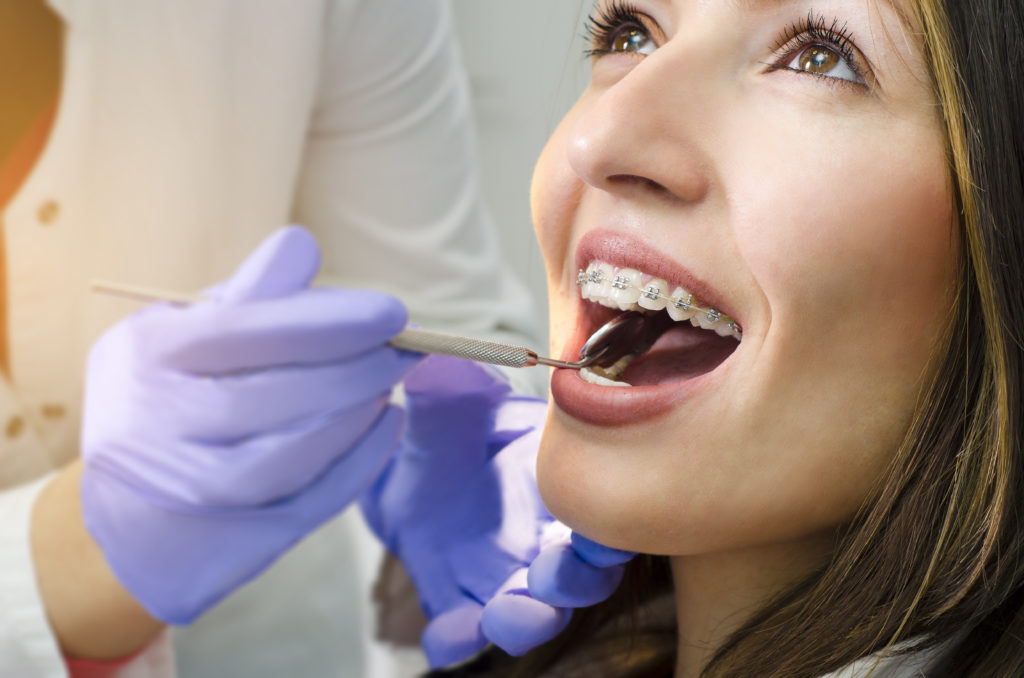Have you been advised to make an appointment with an orthodontist? Find out more about this profession and the differences between orthodontics and dentistry. What are the main reasons for consulting an orthodontist? At what age can you start seeing an orthodontist? We've included all the relevant information in this article.
What is orthodontics?
L'orthodontics is a specialty of dentistry. In other words, an orthodontist is a dentist who has completed additional training after his or her initial training. In Switzerland, orthodontics is one of four federally recognized specialties, along with periodontologyoral surgery and reconstructive dentistry.
The etymology oforthodontics sheds light on its meaning. The word comes from the Greek ortho which means right and odontos which means tooth. The aim of this specialty is to correct the positioning or alignment of the teeth and, by extension, the jaws. It is also known as dentofacial orthopedics.
The orthodontist is involved in the prevention, diagnosis and treatment of this type of anomaly. The aim of orthodontics is not so much aesthetic as functional. Poorly positioned teeth or jaws can interfere with breathing, speaking, chewing or swallowing.
An orthodontist in Lausanne, and more generally in Switzerland, deals with all kinds of malformations of the oral cavity. He can move teeth forward or back, and treat malocclusions, maxillary deformities and mandibular deviations.
At what age should you see an orthodontist?
Orthodontists see both children - from the age of 5 - and adults in their practices. The earlier a problem is treated, the better the results. We therefore recommend that you consult an orthodontist immediately if you notice any abnormalities.
Between the ages of 5 and 7, treatment is preventive and short-lived. If the orthodontist deems it necessary to fit dentofacial braces, they will be light and reduce the risk of complications in adolescence.
Between the ages of 8 and 11, we speak of interceptive treatments. At this age, baby teeth coexist with permanent teeth. Orthodontic monitoring can detect anomalies in the teeth and jaw growth in good time.
Between the ages of 11 and 16, teenagers have all their permanent teeth. In the event of an anomaly, the orthodontist implements corrective treatment. This may involve braces or braces.
Be aware that some seemingly harmless gestures can have negative consequences. For example, sucking your thumb or a pacifier, or pushing on your teeth with your tongue. In the long term, misalignments increase the risk of cavities and chronic gum inflammation.
Reasons for consultation
Your general practitioner or dentist can refer you to an orthodontic specialist. Children's and adults' consultations with an orthodontist in Lausanne are mainly due to :
- overlapping teeth
- jaw deformity
- a mismatch between the upper jaw and the mandible
- inversion between upper and lower incisors
- excess space between teeth
- the presence of a supernumerary tooth
- palate deformity
- a lack of contact between the teeth of opposing dental arches
- staggered maxillary growth
An orthodontist may be consulted for an anomaly affecting the teeth, facial bone structures or orofacial functions. Some of these problems may be genetic. Others may be caused by trauma (accident, fall, etc.).
Today, it's not uncommon for adult patients to consult an orthodontist in Lausanne for aesthetic reasons. Above all, they want to improve the appearance of their face and/or smile.
Orthodontic appliances
There are several types of equipment to meet different needs:
- removable braces: these are clear resin aligners that follow the shape of the teeth and palate. They can be removed for eating, drinking or brushing.
- fixed appliances: these are brackets glued to the teeth or connected by a wire. They can be placed on the front of the dental arch or on the back of the tongue for greater discretion.
Before fitting braces, your orthodontist in Lausanne checks that the periodontium (mouth bones and gums) is healthy. X-rays of the oral cavity may be necessary. Once the braces have been fitted, the doctor offers regular follow-up to check on the progress of the treatment. In cases of severe malformation, you will be referred to a specialist in maxillofacial surgery.
A good oral hygiene is essential. Don't hesitate to ask a dental hygienist in Lausanne for advice.
Make an appointment with an orthodontist in Lausanne
HELVIDENT has a dental clinic in Lausanne, as well as dental centers in Fribourg and Aigle. Our team welcomes you to carry out all types of dental treatment. We have several dentists, hygienists and specialists, including an orthodontist and a periodontist.
If you have any recent prescriptions, tests or X-rays, don't forget to bring them to your doctor for your first consultation. Contact us to make an appointment.

